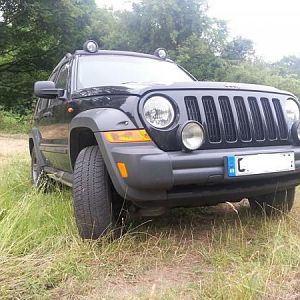Okay, time for my two cents... I am a professional driver. I drive 18wheelers, have nearly 1 million miles on the books. I also used to deliver pizzas... around 2200 miles per month (did that for about 6 years), and I drive just to kill time when I am bored. Here is what little wisdom I can provide:
Driving slow isn't the key... Driving smart and safe is. as in: try to work the stop lights (slow down gradually and try to still be rolling when they turn green).
keep a minimum of a 3 -5 second following distance... as cars bunch up, someone will, without fail, slow down. the next tailgater has to slow more, the next one even more, it is a chain reaction until traffic comes to a stop (this is what causes most traffic jams). if you have sufficient following space, you can slow down gradually, and not have to stop before you can re-accelerate.
These two suggestions can greatly decrease driving irritations... and will affect your mileage A LOT! If you have to stop a lot, you have to apply a lot of fuel to get moving again. This will also massively increase the life of your brakes. I had a girlfriend who would practicly run right up under the car ahead before jamming on the brakes. she got horrible mileage, and she needed to replace her brakes about once a year. I drive the way I am describing most of the time, a set of brakes will last me several years (i usually get rid of the vehicle before needing to replace them). These two suggestions will also decrease your chances of getting involved in an accident by a huge amount.
Next... Oil... In less powerful cars, such as the 4cyl Geo Metro I drove while delivering pizzas... I discovered that using straight normal engine oil would get me the advertised mpg. I used a partial synthetic in the summer, this increased my mileage to about 35mpg on low grade fuel. In the winter I used full synthetic oil to keep my mileage around there, and make it much easier to start on the -30 to-40 mornings we were getting that particular year.
Now, that's a gas!! :
I found that using the cheapest fuel I could get, I would get about 35mpg(think it was around 35 for combined city/highway). on the middle grade, i would net another mpg. on the top grade fuel, i was running at 41-46 mpg, which off-set the cost of the more expensive fuel, and still saved me some money (remember I was driving a minimum of 2200 miles per month)
All this being said, I have noticed that more powerful engines, and carburated engines from the 70's (mainly V-8s) don't notice enough differences in mpg to offset the costs of full synthetic oil (at 1 change per 2 to 3 months), or the high grade fuel.
On the note of higher altitudes equalling lower power... what do you do when you have less power? you make up for it by either downshifting or flooring it... what does that do? increases your fuel consumption. So, you are going to lose both... negligible amounts either way with computer controlled electronic fuel injection... unless you plan on doing a lot of driving above 12,000ft elevation ( i don't suggest that, usually very cold, hard to breath for a lack of oxygen, and your carburated buddies won't be able to follow you).
Next up... maintain your vehicle well. how is your alignment? how are your bearings and u-joints? (I like to replace all the grease with synthetic greases when it's time to service them). the extra drag from worn wheel bearings with little to no grease can affect handling and fuel economy by a lot... not too mention if you drive down I-15 into California in the summer with poorly maintained wheel bearings, you will create a new burned out mark on the side of the freeway where your wheel bearing grease finally burst into flames, then swallowed your vehicle in a ball of fire. worn or under-lubed u-joints and other bearings will lead to sure failure, but also cause drag, drag = less mpg. poor alignment causes drag, and worn out tires. (ever see a car going down the road with it's front tire bouncing like mad? it needs to get into a shop, it's not normal, and that affects performance and mileage if even only in the .01mpg range)
Cornering hard is fun... but it causes more drag as well, slow a little before the corner, ride it through most of the way then start accelerating once you have reached the apex of the curve(most of the way through it), then start accelerating, the act of accelerating will get you back up to speed, but it also makes the vehicle go straight, so it helps you get out of the corner at a higher speed. this is all safer than braking in the corner, and gets you better economy than if you had to brake too hard and dropped more speed than you would have had to otherwise, causing you to need to accelerate harder).
There are more things you can do, but these tips will make you a safer, more efficient driver, and you will be getting the best mileage you can.
Oh, and I have run a GPS in my stock Renegade... my speedometer and odometer are both off. the speedo reads 4mph faster than actual, and the odometer reads more miles than actual (slightly). I figure once i get the lift, and I am running about a 31" tire, they will be about dead on for accuracy, thus alleviating the need to have the computer re calibrated and throwing it off again. So, the mpg figures i can do off of the odo, are actually better than what actual would be. bummer huh?





![IMG 20120722 175932[1]](/data/xfmg/thumbnail/5/5712-f5086c4519a21166faa186544aa78f31.jpg?1623784626)




